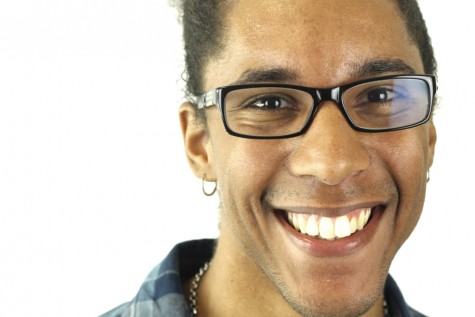Diversity conference illuminates issues of privilege
February 8, 2015
Jeanne Lord said she did not feel qualified to speak on issues that have affected her in the past like being a first generation college student, being raised by a single mother being the target of mean girls.
Lord, the associate dean of the Lumpkin College of Business and Applied Sciences, said she overcame her hardships and was possibly in a room full of others who were either living it or still going through some of their struggles.
Therefore, she did not want to speak during the “Privilege, Power and Oppression: Performing Intersections of Diversity” segment of the seventh annual Diversity Conference.
“I feel like, who am I to bring up something,” Lord said.
Presented by Rich Jones, a professor of communication studies, said the presentation had ties to Making Excellence Inclusive, a forum aimed at making classrooms more diverse and inclusive on Eastern’s campus.
Lord said she was raised by a single mother because of her father passing and was the first to go to college, but she overcame those struggles and found through sharing her story to the crowd that they could relate—especially to her comment about how mean some women can be toward one another.
“We don’t expect women to not support other women,” Lord said.
Hearing about different genders or races interacting and not hitting it off well is common, but it is not expected to come from women toward other women, Lord said.
Lord said she was unsure and does not understand why it is like this between some women, but women need to learn how to support one another.
Mildred Pearson, a professor of education, said after reading the book “Queen Bees and Wannabes” by Rosalind Wiseman, she learned that mean girls often turn out to be mean women.
“Even grown women can be bullies,” Lord said.
Lisa Rhodes, a junior communication studies major, said she was asked to write about herself for a presentation in a communications class; however, when it came to discussing her ethnicity she did not know what else to say other than white. She felt that Caucasians, compared to African-Americans or Mexican-Americans, had no real ethnic identity to grasp, so she was stumped.
When she began to question and talk about these things with her family, she soon learned about white privilege and how there were some forms of racism and bigotry in her family.
White privilege is a social privilege exclusive to Caucasians where they are able to walk, speak, buy and act freely without being questioned or harassed for their choices. This term also extends to the ability of a person never feeling his or her own ethnicity.
“Being white, you have the privilege of not knowing that you’re white,” Rhodes said.
Rhodes said her older brother is someone in her family who is very close-minded and needs to realize that as a white heterosexual male, he is privileged and should have more empathy for those who are different than him. She added being close-minded limits what people can experience in the world.
“He’s awful, sexist, racist and all kinds of nasty,” Rhodes said.
Rhodes said she never had an ethnic identity since most Caucasians are never sat down and told about race relations and white privilege. It was not until college that she began to learn about what it was like for others who were not like her in terms of ethnicity.
Sexual orientation is also a topic she is now exploring and looking into when it comes to how people fit on a spectrum of which gender pronoun they prefer and what others identify as.
“Gender isn’t just male or female,” Rhodes said.
The conference also had a presentation on Colorism by Shawn Peoples, the associate director of student standards.
Colorism is an issue found exclusively in minority ethnicities, where those of dark skin are seen as ugly and unworthy compared to those of light skin. The subject has been within the African-American community since slavery.
Peoples, who is a lighter skinned African-American, said she used to get picked on for having light skin as a child, but she brushed it off because people who are both dark and light within her family have had no issues.
During Peoples’ presentation, she shed light on how deeply the issue is rooted within the African-American community because of terms such as house and field slaves during the time of slavery. House slaves were usually lighter in complexion and seen as more humane so they worked in the plantation house. Field slaves were always darker seen as the opposite as house slaves, so they had to stay outside and work the fields.
The issue of colorism has become such an issue with some in the African-American community that few are now opting to bleach their skin for a lighter complexion.
“We are different shades, but we are the same people,” Peoples said.
Roberto Hodge can be reached at 581-2812 or rlhodge@eiu.edu.

















![[Thumbnail Edition] Senior Foward Macy McGlone, getsw the ball and gets the point during the first half of the game aginst Western Illinois University,, Eastern Illinois University Lost to Western Illinois University Thursday March 6 20205, 78-75 EIU lost making it the end of their season](https://www.dailyeasternnews.com/wp-content/uploads/2025/03/WBB_OVC_03_O-1-e1743361637111-1200x614.jpg)




















































